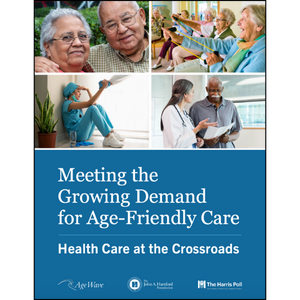Referral, liability implications of hospital readmissions from SNFs
Within the vast healthcare reform legislation, among the many new measures was the Hospital Readmission Reduction Program (the “HRRP”), which is set to become effective in fiscal year 2013 (assuming of course that it is not thrown out as part of any Supreme Court dissection). Using a carrot-and-stick approach, the HRRP will incentivize hospitals to reduce the number of hospital readmissions for acute myocardial infarction, heart failure and pneumonia.
A tainted readmission occurs when a patient is readmitted to the discharging hospital or admitted to another hospital within 30 days of discharge. Those hospitals that are unable to reduce readmissions below set baseline levels will see their reimbursement cut for all Medicare inpatient payments by escalating percentages—1 percent in 2013, 2 percent in 2014, and 3 percent in 2015 and beyond.
But what does this have to do with nursing homes?
Plenty.
Although the HRRP does not directly implicate nursing homes, the Centers for Medicare & Medicaid Services (CMS) certainly sees the connection between hospital readmissions and SNFs. Indeed, CMS estimates that approximately 45 percent of hospital admissions for Medicare and Medicaid enrollees from nursing facilities can be avoided, accounting for approximately $2.6 billion in Medicare expenditures.
In response, CMS announced on March 15, 2012, the Initiative to Reduce Avoidable Hospitalizations among Nursing Facility Residents. This initiative will fund organizations that partner with nursing facilities to provide enhanced on-site services and supports to residents. CMS has committed up to $128 million to support a portfolio of these evidence-based interventions. Eligible organizations can include physician practices, care management organizations and other public and not-for-profit entities.
From a business and liability context, the HRRP may create tension between hospitals and nursing homes and could impact referral patterns. Because nursing homes are one of the chief recipients of hospital discharges, they depend on the hospitals for referrals. Under the HRRP, hospitals will potentially lose money on readmissions. Therefore, hospitals may not appreciate frequent readmissions from nursing home providers.
In addition, if hospitals are concerned about readmissions, they may be less likely to discharge patients as early. Delayed hospital discharges mean potentially fewer acute patients and fewer days for the resident in the nursing home. But these are primarily revenue and business issues, so what are the legal issues for the nursing homes?
As a nursing home lawyer, I have defended several cases in which families alleged that a resident was not timely transferred out for hospital evaluation. We counter that, except in emergencies, it is the attending physician who must provide a transfer order for the hospital visit.
In many nursing homes, however, the attending physicians and medical director may be active in the operations of the local hospitals. So under HRRP, will there be a potential for the attending physicians (even subconsciously) to resist transferring residents back to the hospital when they know that the hospital could be adversely affected financially? Conversely, what if a physician transfers too many residents back to the hospital and angers the hospital’s discharge planners at the expense of the nursing home?
Will these outside pressures affect the transfer decisions for nursing home residents and, if so, should we expect an uptick in claims relating to delayed transfers?
It may be too early to predict these potentialities, and any predictions are made even more uncertain by the Supreme Court’s looming decision on healthcare reform. Nevertheless, these readmission measures are consistent with the value based purchasing initiatives that CMS has been implementing over the last 10 years with the support of both parties, so even if temporarily derailed by the Supreme Court, they will likely reemerge in the same or similar form.

Jason E. Bring, Esq., is a member of the Healthcare Group of Arnall Golden Gregory LLP. Bring defends nursing facilities in medical liability and False Claims Act cases, as well as assists them in regulatory and reimbursement issues.
Related Articles
Topics: Medicare/Medicaid










